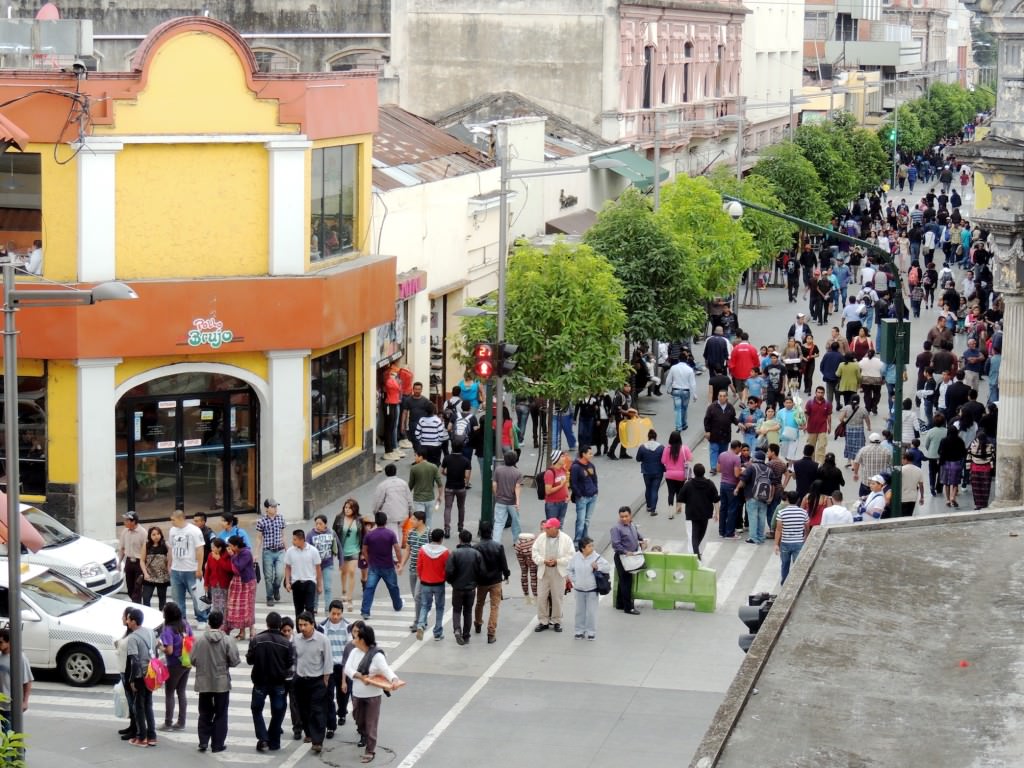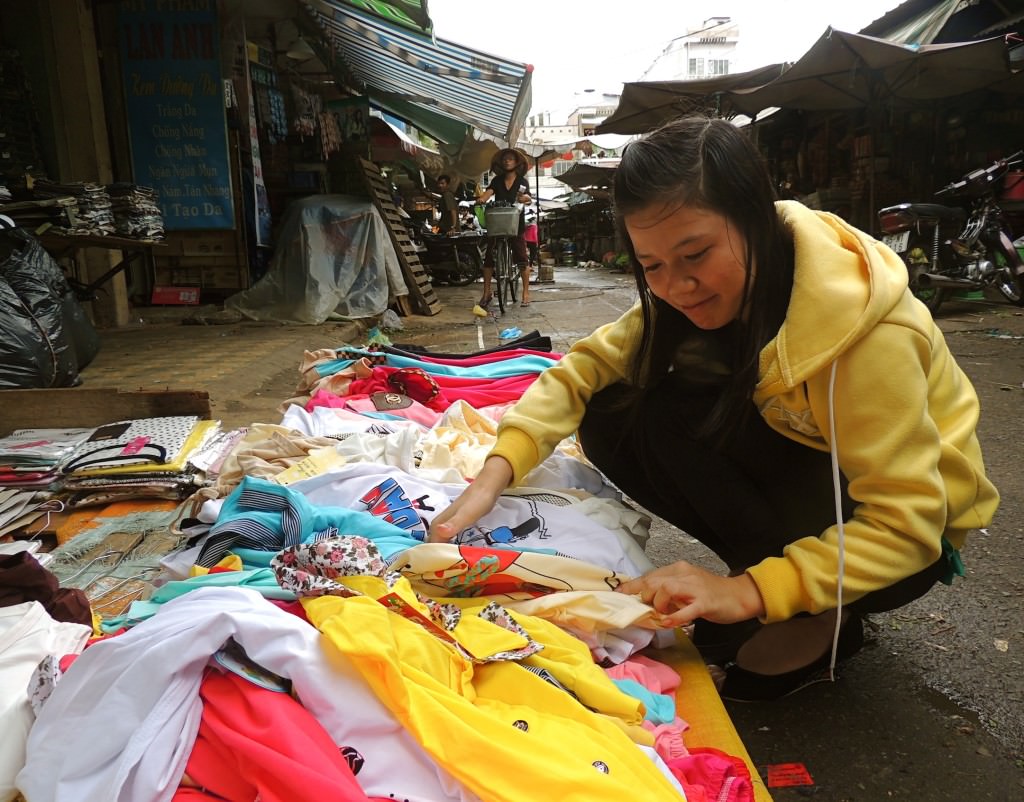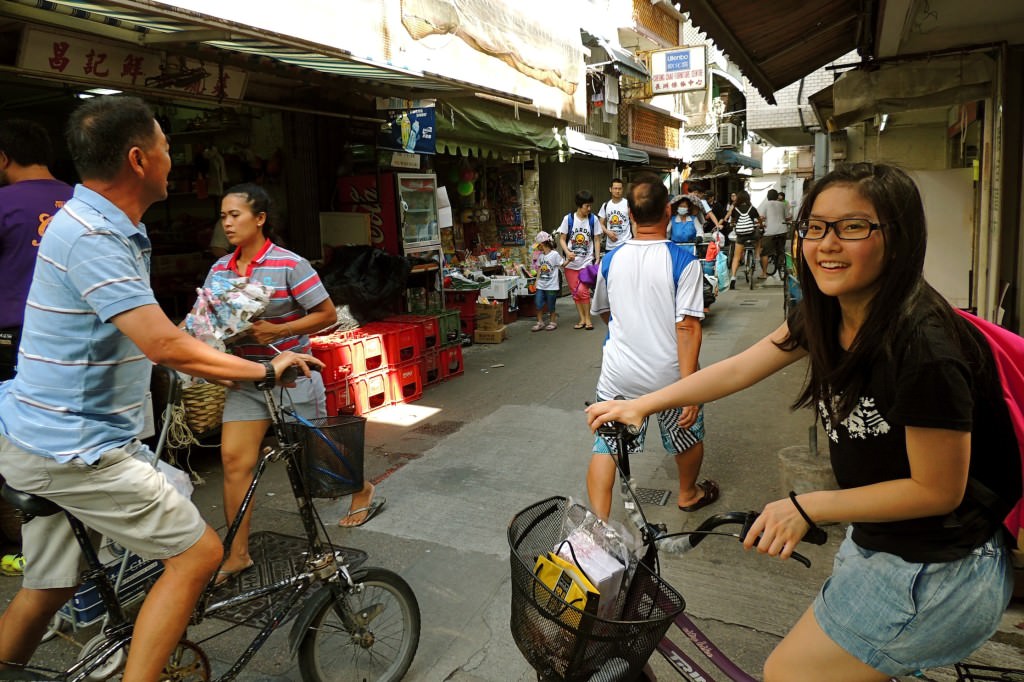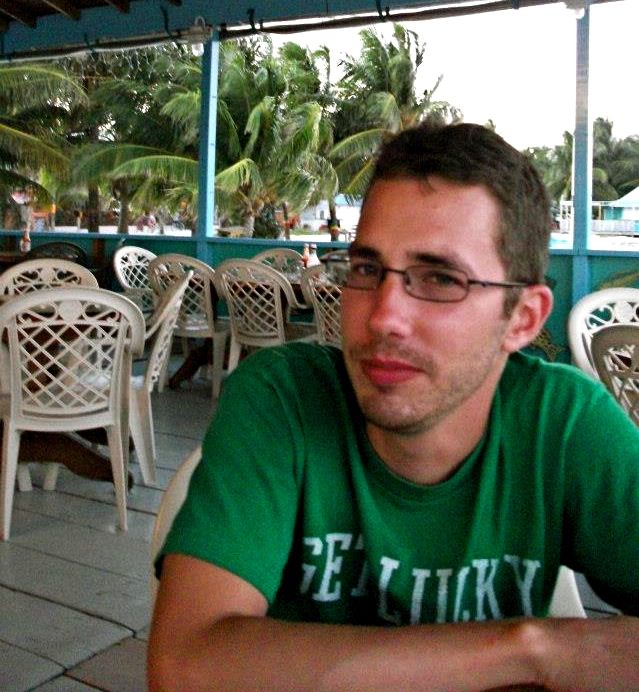Is Travel Dangerous?

Traveling is one of the best decisions you’ll make in your life. I felt great after seeing Hong Kong from Victoria Peak.
When I told people that I was leaving for my world trip, 90 percent were supportive. Then, there was that 10 percent.
These are the people who will try to tell you that you shouldn’t go for whatever negative reason they can think of in their head.
Here are three reasons I’ve been told not to travel and how you can handle it.
1. “Oh, it’s so dangerous out there …”
“Really? When was the last time you went outside the country? That’s what I thought.”
The people who tell you these things are just frightened from the images that they see in the news. As a former television news producer, I searched for visual elements to put into my newscast every night.
Car crashes generally make television news for that reason. Even though wrecks were an everyday occurrence, I never felt afraid to drive a car. I’m sure those news stories don’t scare the people telling you this from driving either.
Furthermore, every city has a so-called “bad” neighborhood. Whether that’s in Boston, Louisville, Wichita, Los Angeles, Phoenix, Toronto or Montréal, people who are frightened of crime generally avoid these “bad” neighborhoods. Furthermore, guidebooks and locals will advise travelers of where to not go in cities where they may find dangerous situations.
I’m not naïve. Crime can happen during travel. I was robbed in Zona 1 in Xela, Guatemala despite that being the area where tourists are most safe. However, that doesn’t mean that entire locales are dangerous. Two weeks later, I was in Guatemala City, where the U.S. State Department stated that 25 murders were reported weekly in 2009. I went out at night with my friends and walked home with them. Nothing happened to me.

Traveling isn’t dangerous even in cities labeled as such. This is a typical day for shoppers in Zona 1 in Guatemala City.
Lisbeth Rosales was one of those people with me. She’s lived in Guatemala City her entire life and said people are used to being cautious.
“People will kind of stay vigilant,” she said, “looking around … Not that you can’t live a normal life. Just be extra careful.”
Lisbeth recommended hiding cell phones when out in the open, always traveling in groups and not going to dark places.
When I asked Lisbeth if some people are scared of visiting the country because of crime, she agreed, but said they were missing out on Guatemala’s natural beauty.
“The people here are really warm,” she said. “They’re kind people. You can live a normal life here.”
I agree with her. I was told several times to avoid Guatemala City because of its violence. Instead, I enjoyed experiencing a place off the tourist trail and relished in the fact that I saw only one other gringo on the street during my weeklong escapade into the city.
Be courageous, and you may discover something unique you’ll remember years later.
2. “I went to Iraq/Afghanistan. The world hates Americans.”
“I’m not going to a war zone …”
Never in my travel did I find a group of people or an individual who hated Americans. There is probably a guy somewhere who hates all people from the United States, but I guarantee you that you won’t find that guy during your travel.
I once got into an awkward conversation with a Tunisian on a bus ride in Canada. He spouted off problems with Western society, singling out how Canada and the United States are destroying the importance of family and how women’s attire is too revealing. While I disagreed with his misogynist views about women, the man never had a problem with me during the bus ride. He even offered snacks to me.
The reality is that the people who dislike the United States generally hate our government. They don’t have a problem with a person from the country.
“The only stuff that will come up is when you talk politics,” said Kenneth Buff who travelled to Europe this summer with his fiancée and his friend. “I met an Australian who was pissed that Obama didn’t pass universal healthcare. That’s the biggest thing that I heard about … No one was negative to me because I was American.”
Kenneth said what he encountered was stereotypes of Americans, which every human is guilty of doing. Kenneth said he was asking about perceptions when he travelled to England. He met two Dutch women who told him that Americans were “fat, loud and obnoxious.”
“Those are the Americans they usually encounter,” Kenneth said. “That’s the perception that some Europeans have of us because of dumb kids in college going on college trips. It’s not like you walk around and everyone is in Al Queda thinking you’re the Antichrist or something.”
Kenneth said he asked the women later if they hated Americans, and they said no.
Even if you want to make the argument that the world hates Americans, few countries do. According to a Washington Post article, only Pakistan, Egypt, Jordan and Turkey overwhelmingly disapprove of the United States. Those are four countries out of 193 recognized by the United Nations. In addition, the article states that each country has its own political reason for not liking Americans. The reasons were never about the American people.

A woman shops for shirts in the Tân Bình District of Ho Chi Minh City. She wanted to know as much about me as I did about life in Vietnam.
Wherever I went, local people were generally inquisitive about Americans. They want to know the basics. Where are you from? What do you do? Is this your first time in the country?
Locals may think that you’re gullible and try to rip you off, but they certainly won’t try to kill you because of your nationality.
3. “What if you catch some weird disease?”
“Mom, I haven’t died yet …”
I love my mother, but I believe that she has an irrational fear of diseases. She always would ask me “Does this country have good medical care?” when I would tell her where I was planning on going next. Then she would find some article about parasites and turn into a nervous wreck.
Her heart is in the right place. It’s a mom’s job to worry; however, I think her fear gets too carried away.
Most likely, the biggest problem you’ll experience is traveler’s diarrhea. The Center for Disease Control estimates 20 to 50 percent of international travelers, 10 million people, will develop the illness during or after their trip.
But let’s say that something bigger happens. Depending on where you are in the world, that country’s health care could be better than the United States.
The World Health Organization studied health care in 2000 and ranked 36 countries above the United States, including Costa Rica, Dominica, Morocco, Saudi Arabia and Colombia (that’s also not mentioning just about every European country that beat the United States, nor Canada or Japan). In addition, a 2010 report from the Commonwealth Report ranked the United States last in healthcare among Australia, Canada, Germany, New Zealand, the Netherlands and the United Kingdom. One of the main factors in both reports is the cost of medical procedures in the United States.
In Belize and Guatemala, I went to the doctor once in each country to take care of amoebas. Lab work and medicine cost around $30 each for both countries. In Thailand, I had a dental cleaning for around $30. In Vietnam, I had to undergo a physical, blood-work, an EKG and an x-ray for a visa to China. The total cost was $250. In all cases, the medical care was reasonable. In Vietnam, the quality of care was better than what I experience in the United States. All of these are prices without insurance.
When I first came to Arizona, I had to see doctors twice. The first visit was to an optometrist in Prescott Valley. I spent $132 on the visit and $89.08 on the medicine. A week later, a visit to a physician for earwax buildup cost me $226, which consisted of a solution squirted into my ear with a bottle. Certainly not high tech …
It is absurd to pay this much when medical care is more reasonably priced around the world.
Medical tourism is a growing market for this reason. Patients Beyond Borders estimates the growth is 15 to 25 percent each year, particularly in Asia. And when the Medical Tourism Resource Guide cites the procedure of a heart valve is $15,000 in India versus $150,000 in the United States, this is a no-brainer on why people choose to travel to these places to receive their treatment.
Hopefully, your trip will be free of medical problems, but if one arises, you can receive medical care.
———— Bottom Line ————
Don’t let anyone go unanswered when they tell you not to travel. Press them for their reasons. Most of the time, they will be unfounded, and you can go about your day knowing that you educated someone about the world.


 August 26, 2013
August 26, 2013 












No comments yet... Be the first to leave a reply!